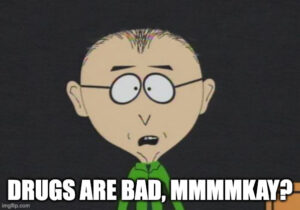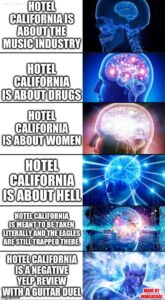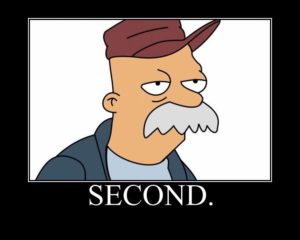Last week President Donald Trump “announced his intentions to designate Mexican cartels as foreign terrorist organizations (FTOs), just weeks after nine American were ambushed and gunned down less than 100 miles from the U.S.-Mexico border by cartel members.” Sarah McConnell at The Texan has details on legislation to enact that proposal:
After the president said he was considering designating Mexican cartels as FTOs in February, Texas Rep. Chip Roy(TX-R-21) supported by other members of the Texas delegation introduced legislation intended to do just that.
According to the Department of State, the FTO designation is granted by the Secretary of State in accordance with section 219 of the Immigration and Nationality Act (INA) as a means of helping to fight terrorism by “curtailing support for terrorist activities and pressuring groups to get out of the terrorism business.”
The Bureau of Counterterrorism within the State Department (CT) monitors foreign organizations known to be connected to terrorist activities, including engaging in, planning, and preparing attacks.
In addition, the CT carries the responsibility of identifying potential targets for designation based on capability and intent to conduct terrorist activities.
After the CT identifies a potential FTO designation and demonstrates that the foreign organization in question engages in or is capable of terrorist activity through a detailed record, the Secretary of State in partnership with the Attorney General and Secretary of the Treasury then decides whether or not to grant the designation.
If the designation is granted, Congress is notified and given one week to review under the terms of the INA.
The designation officially takes effect when published to the Federal Register provided Congress does not vote to block the designation within the allotted time frame.
An entity legally fits the criteria for FTO designation under the terms of the INA if it:
Is a foreign organization,
Engages in terrorist activity as defined in the INA, or
Threatens the national security of the United States or U.S. nationals through terrorist activities.
In effect, the FTO designation authorizes the Secretary of the Treasury to freeze all assets and block financial transactions conducted by the terrorist organization.
That’s great and all, but I doubt Mexican drug cartels keep the majority of their funds in the United States. Some, yes, but I bet the bulk are in Mexico, Caribbean tax havens and Switzerland. In addition to those giant piles of cash they keep around for washing cars, buying drugs, exchanging hostages and buying politicians.

(That photo of a giant pile of cash was taken from accused Chinese-Mexican Sinaloa Cartel druglord Zhenli Ye Gon, was seized in 2007, and has $207 million in U.S. currency alone. It’s been circulating a while, and recent pieces that claim it was seized from someone else or is worth more (I’ve seen $22 billion) are untrustworthy.)
Additionally, the designation restricts the ability of foreign organizations and their affiliates to travel to the United States and makes it illegal to provide resources to the terrorist organization.
The designation also has foreign policy implications, as it stigmatizes terrorist organizations, brings awareness to other nations of the dangers of said terrorist organizations, and helps to curb terrorism financing internationally by encouraging other countries to also consider designating organizations as such.
This will help some, but drug organizations tend to be fairly nimble about moving their money around, and have so much of it that it’s easy to bribe officials up and down the line to make look the other way, an advantage most Islamic terrorist organizations don’t have.
After announcing his intentions to designate Mexican cartels as FTOs last week, President Trump has been met with resistance from Mexican government officials despite the president’s offers to provide added border security measures and other forms of assistance to the country.
Citing concerns over U.S. intervention in the country, Mexican Foreign Minister Marcel Ebrard issued a statement following President Trump’s announcement saying, “Mexico will never admit any action that means the violation of its national sovereignty. We will act firmly. The position has already been transmitted to the US as well as our resolution to deal with transnational organized crime. Mutual respect is the basis of cooperation.”
Mexican President Andrew Manuel Lopez Obrador has also declined aid and other forms of assistance offered by President Trump.
It’s hard to get more hands-on with Mexican drug cartels when the Mexican government wants you to stay hands-off.
Can such declarations win the War on Drugs?
No.
Human desire for illegal drugs is so strong that even the death penalty hasn’t prevented a thriving illegal drug trade in China, and there was even one in the Soviet Union. A further problem is that large swathes of Mexico’s government is believed by many to be in the pay of various drug cartels. Joaquin “El Chapo” Guzman claimed that he had paid a $100 million bribe to then-Mexican president Enrique Pena Nieto, and Guzman also claimed to have bribed a onetime campaign associate of current president Lopez Obrador. And those are just allegations from one trial of one cartel head. Mexico itself has proescuted many more officials for cartel bribery charges. “Would you prefer to take a million dollars from us, or to see your entire family tortured to death in front of you?” is a powerfully persuasive argument to many Mexicans.
Is there any way to win the war on drugs? As a science fiction writer, I could spin up a scenario where our military and/or mercenaries (think letters of marque and reprisal) simultaneously decapitate all the major cartels by taking out their leaders and lieutenants, while simultaneously seizing control of all the known coca fields, and maybe clandestinely blowing up an illegal Chinese fentanyl factory or ten, and simultaneously legalizing drugs, and offering zero-cost drug fixes in safe surroundings for registered addicts and whisking a certain number off to giant treatment/rehabilitation/internment facilities off in Montana or Idaho or someplace where gangs wouldn’t immediately bribe someone to start dealing to the suddenly isolated addicts, and massive job programs for registered/ex-addicts to clean up America’s cities at below minimum wages while they complete treatment programs while also retraining for better jobs to integrate them back into the community. I can see that cutting illegal drug use by 80% of more while draining all the profit from the cartels, all at a cost of only, oh, about four or five political and/or constitutional impossibilities. It might not work, but it probably wouldn’t fail any worse than the system we have now, especially in the places where Democratic Party mayors already let drug addicts openly shoot up in the street.
I would also like a pony.
Short of that, or some technological fix (one injection and the nanoassemblers in a junkie’s bloodstream to produce a heroin rush whenever desired for the rest of his life), or even less probable Social Darwanist solutions (such as John W. Campbell’s proposal to put free barrels of heroin on every street corner; by the evening everyone who couldn’t handle it would be dead and the rest of us could get on with our lives), I don’t see any government policy short of full legalization of all illegal drugs making any significant difference in the problem.
But as much as I support drug legalization, I suspect I’ll get two ponies before that happens.
Would declaring the cartels terrorist organizations make a big difference? If it actually lets us take out the cartels, then briefly, and marginally, until new cartels form to fill the vacuum. During that time, Mexico might indeed improve to become a less violent place, possibly only temporarily, or the new cartels might be more circumspect in their violence, or more willing to peacefully carve up business. If, however, it results in a permeant American military presence fighting the cartels, then it would probably make things worse.
As a persuasion play for the current cartels to knock off the violence and take a lower profile, then it might indeed have some value.



